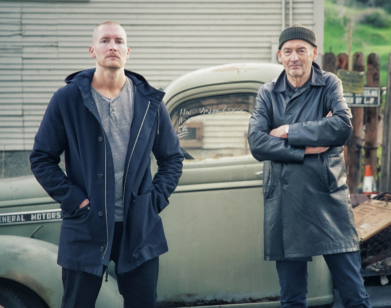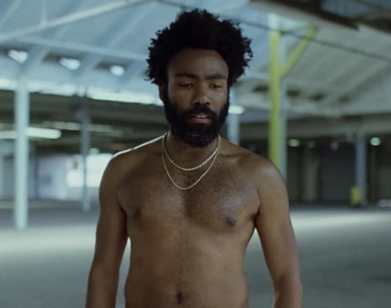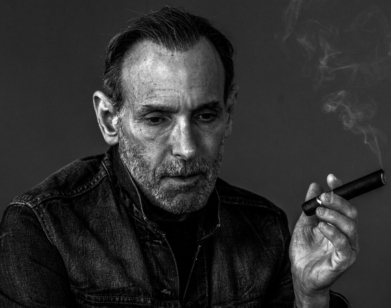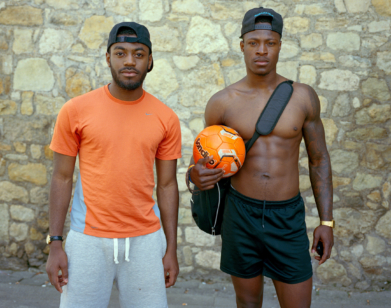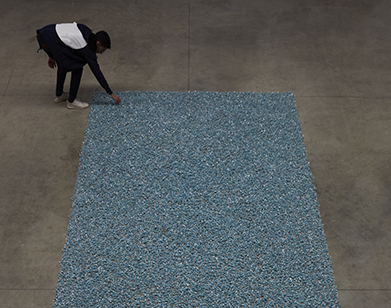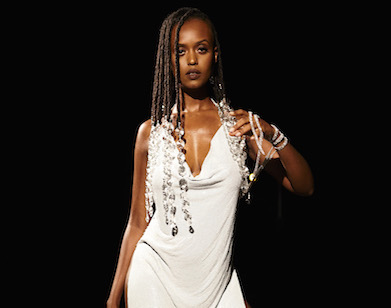Mysterious R&B singer H.E.R. already has a fan in Rihanna
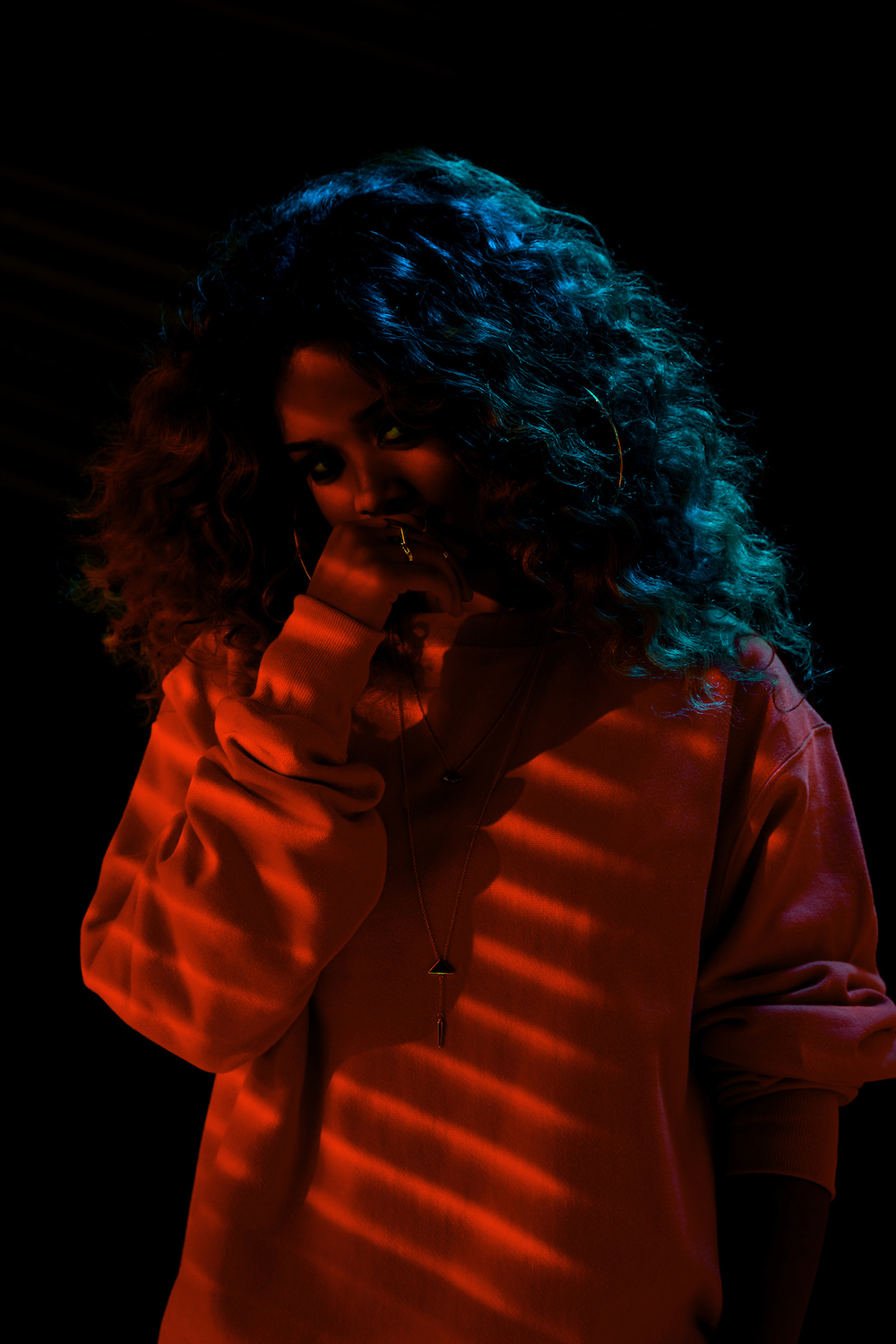
In a ceaseless culture of oversharing, it’s rare not to know everything about the lives of popular artists. Such is the case with H.E.R., a mysterious R&B singer who emerged on SoundCloud last year with a head-to-toe silhouette for an EP cover and no biographical information to offer—just seven songs, including a cover of Drake’s “Jungle.” That music, H.E.R. Vol. 1, put her on the map very quickly, earning early support from Alicia Keys, Wyclef Jean, Pusha T, and others.
Just as quickly, fans and critics began to theorize that H.E.R. was actually the moniker of Gabi Wilson, who had signed to and released music with RCA Records, as Wilson, two years before. Wilson had been building a career in music since she was young, by singing covers on daytime television shows and in talent competitions. Although there’s little doubt at this point that they’re the same person—Genius pointed out that the “Jungle” cover was in fact originally released by Wilson in 2015—there’s been no official confirmation, and both H.E.R. and Wilson still maintain separate, active profiles on Twitter and Instagram.
Today, H.E.R.’s real identity may not matter to her legions of fans. The release of H.E.R. Vol. 1 and Vol. 2, a song with Daniel Caesar, and a tour with Bryson Tiller have earned her a loyal following, which happens to include Rihanna. Her first solo tour in the U.S. sold out completely, and, according to Spotify, she has 2.5 million monthly listeners, who have streamed songs like “Best Part” and “Losing” over 18 million times each.
Ahead of a solo European tour in March, H.E.R.—who says that she’s currently based in Brooklyn, but “living out of a suitcase,” as she tours and works on a new album—shares a little bit more about herself, including the purpose of her self-imposed anonymity.
CEDAR PASORI: What music were you were exposed to when you were younger?
H.E.R.: I remember being really, really young and watching Prince and Michael Jackson concert DVDs. One of my favorites is Prince’s Rave Un2 The Year 2000. My dad and I used to play Prince, Lauryn Hill, Stevie Wonder, The Parliaments, and a lot of older funk bands while cooking breakfast in the morning.
One of the first CDs I ever bought was Alicia Keys’s MTV Unplugged album. That album is the one I would take home and listen to on my Walkman, in my room, before I had an iPod. I learned most of the songs on piano.
PASORI: When did you start writing your own music?
H.E.R.: I’ve been writing since I was five years old. I used to write poetry, and I loved to rhyme. When I was seven or eight years old, I would write songs about music itself, and later the songs became more and more personal, like my diary. When I turned 10, I remember writing a song called “Curious” on guitar. It was about how people like my parents were being nosy and in my business. [laughs]
PASORI: I noticed that you’ve also been playing guitar on tour. When did you learn to play instruments?
H.E.R.: Well, my dad is also a musician, so there were always instruments throughout our house. He was part of a cover band, and they used to rehearse in our living room. We had a piano, guitar, and drums. Whenever they would take a break, I would start trying to play the guitar. I first learned the pentatonic scale, and then my dad taught me how to play the Blues. Guitar made me want to be a real artist and performer.
PASORI: When did you start performing?
H.E.R.: I’ve been performing since I was really little, first locally in the Bay Area with my dad’s band in Vallejo, California, where I grew up. A lot of people don’t know that I’ve been performing in front of audiences for a long time.
I had to learn the other side of performing, which is creating. Around 13 or 14 years old, I learned the difference between singing live and in the studio, in a recording booth. They are two completely different worlds. Having a foundation in performing made me feel really strong and confident, so that when I did go on my first tour with Bryson [Tiller], I felt like I was going back to my roots.
PASORI: Did your recent tour with Bryson make you feel nostalgic for those days?
H.E.R.: I like to revisit my younger self and really think about the performer I wanted to be when I was little. I feel like I’ve been able to take the little me and incorporate all of that confidence into the music I now make, in addition to the live show. It just makes sense to me.
PASORI: How did you develop H.E.R.—both the name and the persona of yourself as an artist?
H.E.R.: From ages 16 to 18, I was going through what I call the evolution of a woman. I was dating and going through a lot of changes when it comes to love, confidence, and finding myself.
During this time, the studio was my safe haven. I would talk to the producer, Swagg R’Celious, who’s like my big brother. He had a lot to do with the concept of H.E.R. and my growth. We would be in a room with a piano, and I would cry while talking to him and sharing some melodies and chord ideas. I was living in Brooklyn, creating music for a full week and then going back to my life, which would inform the stories I’d take back to the studio. Eventually I had seven songs that completely described exactly what I was going through. That’s H.E.R. Vol. 1—the diary and stories of my four years of evolving as a woman.
You have a diary, and you don’t want anyone to read it, right? As artists, we let everyone read our diary. The anonymity of H.E.R. came from me wanting this to be about the music—wanting people to hear the message without necessarily attaching an age or a face to it. As women, we go through a lot of the same things. We all get hurt. So I just wanted to be that one voice with a message that women and even men can relate to. H.E.R. stands for “Having Everything Revealed.”
PASORI: In addition to having songs about shared pain and heartbreak, I appreciate how you have songs like “Every Kind of Way,” from Vol. 2, where you explore the feeling of being really in love. Were you in a different place by then?
H.E.R.: I finished “Every Kind of Way” after creating a majority of the songs on Vol. 1. It’s the more optimistic side of me. Love can do that. Love can come out of nowhere and make you think, “Wow, maybe this isn’t so bad.” When I was younger, I felt like I was getting jaded too fast. When I wrote that song, I was fantasizing about a place that I wanted to be in with somebody.
PASORI: Equally, you have songs like “Focus” from Vol. 1 that are so descriptive when it comes to the relationship you were in and what you wanted. How was “Focus” made?
H.E.R.: When I listened to the track that DJ Camper created, I just felt the vulnerability in the sounds he chose. The chords sounded like a plea, to me. I started thinking about a situation we’ve all been in — feeling like we’re not given enough attention. You want your boyfriend to put his phone down. You’re thinking, “Just look at me for a second,” or, “Don’t look at her, look at me.” As I was writing it, I was painting that picture of the faucet running, I’m looking at him, and he’s stuck on his phone without a clue.
PASORI: What did you think about Rihanna posting a video of herself on Instagram with “Focus” playing in the background, almost like a music video?
H.E.R.: I was very surprised. I first saw it from someone reposting it. I was just laying in bed, and then I got up and started jumping up and down. She looks so gorgeous in the video. The wind blowing in her hair is just perfect. I didn’t know that she was into my music, but she followed me after that.
https://www.instagram.com/p/BSpbvjrDci1/
PASORI: So now you’ve been on tour with Bryson Tiller, and one of your most popular songs is a collaboration with Daniel Caesar, “Best Part.” What made you want to work with him?
H.E.R.: I was actually in a session one night, and it ended early. Daniel came with my friend, Tunji, who works at RCA and wanted to introduce us. I was already a fan. We didn’t plan on having a session. We just started playing music for each other and talking. He had his guitar, and I had my guitar, so we started playing. The song came out organically, just bouncing melodies back and forth. We’re both big fans of D’Angelo and Lauryn Hill, and I think “Best Part” has that essence.
PASORI: It seems like you’ve not only put in the time and educated yourself to be an artist, but that you’ve had some great support and dot connectors along the way.
H.E.R.: Yeah, Jeff Robinson, who’s my manager, is also my mentor. He’s really taught me the music business and staying true to myself. Tyrese Gibson has also given me a lot of great advice about just sticking with the path I’m on. Alicia Keys has been a big sister to me, too. Jeff used to manage her, which is how we met.
PASORI: During shows, you wear sunglasses, and you’ve hardly shown your face in press photos, thus far. Do you see a point in time when you are no longer anonymous? Is that something you’re planning for or thinking about?
H.E.R.: I think it’ll happen organically. At this point, people don’t really pay attention to my identity. They’re drawn to the music. That was the point. I’ve reached my goal. It doesn’t really matter. Eventually, they’ll see my face.

